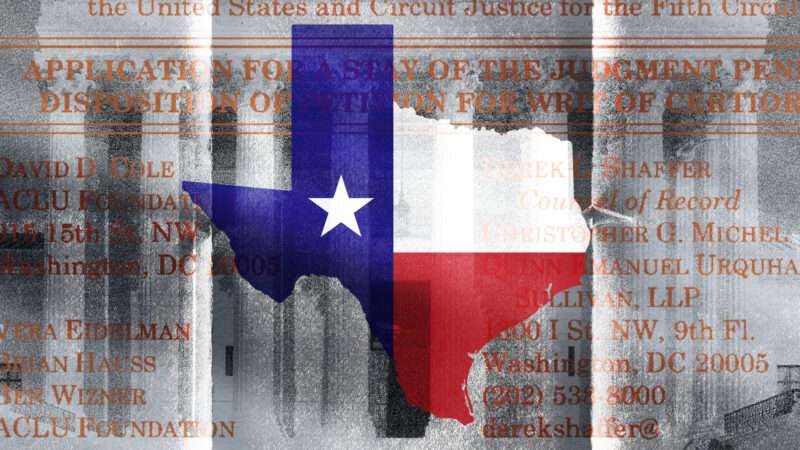Adult Entertainment Group Asks Supreme Court To Block Texas Age-Verification Law

Last week, the Free Speech Coalition, a group representing the adult entertainment industry, filed an application asking the Supreme Court to block a Texas law requiring age verification to access porn sites, pending a petition with the court. The group claims that the Texas law violates the First Amendment rights of adults by burdening their access to protected speech and unreasonably invading their privacy.
Texas is one of a handful of states that have passed a law requiring that sites hosting explicit content verify that all users are adults. While the exact methods of this verification vary from legislation to legislation, the Texas law requires individuals to "provide digital identification" or "comply with a commercial age verification system that verifies age using" a government ID or "a commercially reasonable method that relies on public or private transactional data to verify the age of an individual."
Practically, this means that adults seeking to use porn websites are required to show a photo ID or comply with another measure, such as a facial scan, to verify their age.
The Texas law claims it intends to simply limit minors' access to pornography, citing a Texas Health and Human Services warning that "Pornography is potentially biologically addictive, is proven to harm human brain development, desensitizes brain reward circuits, increases conditioned responses, and weakens brain function."
In their filing, the Free Speech Coalition argues that this goal is being achieved by placing "substantial burdens on adults' access to that constitutionally protected speech."
While the law was at first halted by a district court, the 5th Circuit Court of Appeals ruled last month that the law was constitutional due to the state's compelling interest in protecting minors from the "harms" of pornography.
However, the Free Speech Coalition argues that this ruling is mistaken and in conflict with previous Supreme Court precedent that does not allow overly burdensome restrictions on adults in the service of protecting children from "harmful" content.
"The Act requires adults to comply with intrusive age-verification measures that mandate the submission of personally identifying information over the Internet in order to access websites containing sensitive and intimate content," the filing reads. "Of particular note, the [5th Circuit] found that the age-verification requirement deeply chills adults' access to protected speech given the risks of online privacy breaches."
In an effort to prevent kids from accessing pornography websites, adults' ability to access explicit material is already being affected. So far, PornHub has withdrawn from seven states, citing the impracticality of complying with the law. While some politicians have praised PornHub's shutdown in the state—Texas Attorney General Ken Paxton declared "good riddance" to the porn site—their celebration is ultimately short-sighted.
"Banning (or putting up major barriers to) products that people want doesn't stop people from wanting and accessing those products," Reason's Elizabeth Nolan Brown wrote last month. "By driving viewers away from platforms like Pornhub—sites that engage in at least some content moderation, are relatively receptive and responsive to authorities, and are willing to forge mutually beneficial partnerships with porn creators—age verification laws could actually increase viewership of exploitative or otherwise undesirable content."
Yet the Free Speech Coalition's claims rest on a more fundamental claim—the First Amendment Rights of adults.
"Profound irreparable harm flows from the Act's chilling of adults' access to protected sexual expression," the Coalition's filing reads. "First Amendment interests should prevail while this Court conducts its review."
The post Adult Entertainment Group Asks Supreme Court To Block Texas Age-Verification Law appeared first on Reason.com.
